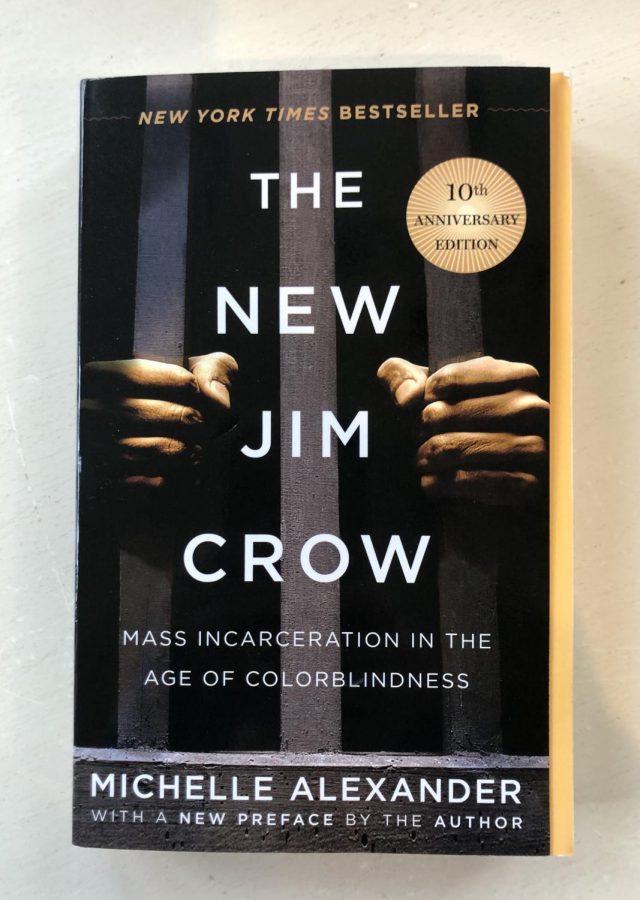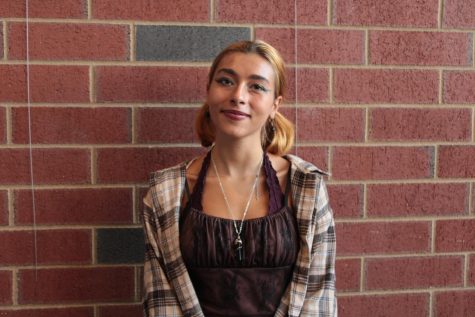Learning Through Literacy: The Social Justice Book Club
Photo courtesy of Camilla Baumer
This book chosen for discussion was the winner of the NAACP Image Awards (Outstanding Non-fiction, 2011), the National Council on Crime and Delinquency’s Prevention for a Safer Society (PASS) Award, and of the Constitution Project’s 2010 Constitutional Commentary Award.
December 23, 2020
After a critically intense year for social justice sparked by the Black Lives Matter movement this summer, two teenagers in State College took it upon themselves to promote one of the most important steps of activism: education. This past fall, State High and Delta students were invited to participate in a book club centered around inequality, injustice, and activism. Led by junior Alanis Walters and senior Camilla Baumer, the Social Justice Book Club was created as a community where students could come together and spark discussions.
After taking a class rooted in social justice in her sophomore year, Walters was inspired to host a book club and take advocacy into her own hands. The class was Delta’s Bridging Divides, taught by Virginia Squier and Lorraine McGarry, and it made a deep impact on Walters. Students began the course by exploring the history of racism in America, from slavery to mass incarceration. After a field trip to Alabama, students were assigned to create a community project centered around social justice that would later be presented at a fair open to the public. Almost immediately, a book club seemed like an obvious answer, given Walters’ affinity for books as a teaching tool.
“I feel like that’s one of the best ways of informing people and having active discussions that inspire real change rather than just Instagram posts. I really want people to engage with this kind of topic and I feel like books are one of the best ways to fully understand something,” Walters said.
After hearing about the club from Walters’ teachers, Dr. Seria Chatters, Director of Equity and Inclusivity at SCASD, approached her and offered to help put together another one, independent from school. This new and now completely self-led club would be held during June for the Peer Advocates Program. Over the summer, the book club discussed Despite the Best Intentions: How Racial Inequality Thrives in Good Schools by Amanda Lewis and John Diamond. The club was a success, and in August, Walters was approached by Baumer for the first time, along with Dr. Chatters and equity liaison Ashley Diaz, who currently moderates the club. Baumer wanted to expand the club to more of the school community.
“I really wanted to shed light on the issues within our community and I thought a book club would be a really great way to do that because it can bring a lot of people who maybe aren’t already participating in activism together,” Baumer said.
To prepare for meetings, Baumer and Walters create discussion questions for each chapter and during the meetings, they fill the role of facilitating discussions. Since November, the club has had two online meetings.
The book they’re discussing now, The New Jim Crow: Mass Incarceration in the Age of Colorblindness by Michelle Alexander, is what Baumer and Walters both saw as a good segway into topics of racial justice. The six part book is a winner of multiple awards, has become a staple anti-racism piece to read, and is highly renowned among many for its acute social commentary. It introduces topics such as “preservation through transformation,” a term used to describe how racist structures are preserved in society through renaming and rebranding.
The New Jim Crow details the transition from slavery, to Jim Crow laws, and now to what is the prison industrial complex. Walters explained how the author skillfully personalized issues such as the criminal justice system by including testimonies of people whose lives had been ruined by it. It forced readers to pay attention to the issue at hand.
“It’s not something you can just ignore. Books help make it feel like a real problem that needs to be encountered and dealt with,” Walters said. “Again, that’s why book discussion is my favorite way of inspiring that kind of stuff; engaging with text is really one of the best ways to do that.”
Walters and Baumer recognized that with the heavy topics that come with social justice, many difficult conversations have to take place that can be sensitive or personal. As co-facilitators, Walters and Baumer devised certain ground rules to keep the atmosphere secure for everyone involved. At the first meeting, they encouraged participants to add to their list of ‘norms.’
“The biggest ones are that, ‘we can share what is learned here but not what is heard here.’ That means that if people might share their personal stories, we can talk about the gist of what we learned from each other but we can’t share personal recounts or anything,” Baumer explained. “We also just want to make sure that when we’re saying what we’re saying we recognize our own privilege and where we came from, so as not to discredit anyone’s experiences because we all have different backgrounds.”
The student leaders hope that the club can help educate members about these types of issues and relate them to their own community.
The experience of running the club has been just as, if not more gratifying, for the student leaders as it has been for participants.
“Watching these people be so passionate about it and being able to experience a discussion that is your doing is incredibly rewarding,” Walters added. “That’s the best part.”
Being part of a group that strives to create positive change in their community is meaningful to everyone involved. Walters and Baumer have provided an opportunity for students to engage in important conversations that help develop a safe and reflective school environment.


